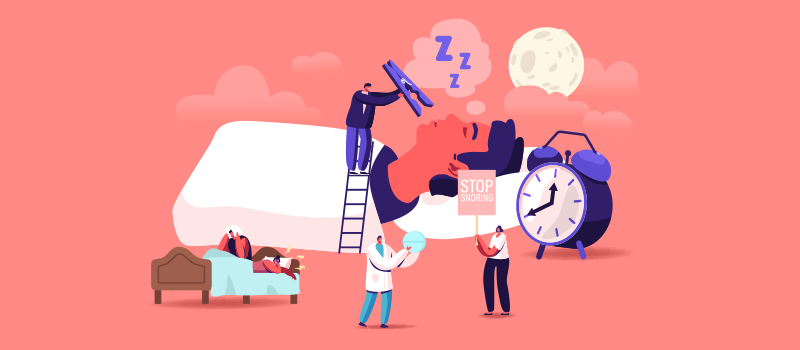What’s the Buzz
The Bee Healthy Blog
Hydroxyzine vs. Benadryl For Sleep

Antihistamines are drugs that are commonly used to treat allergic reactions and allergy symptoms. These medications are available both by prescription and over-the-counter. Like all medicines, they can cause side effects. One of the common adverse effects of antihistamines is drowsiness. While this side effect is unwanted during the day, it can be desirable at night for someone suffering from insomnia or sleeplessness.
Please continue reading to learn more about using an antihistamine as a sleep aid. To find out which one is better for sleep, we will talk about two antihistamines in particular — Hydroxyzine and Benadryl. We’ll also discuss whether it is safe to take antihistamines to treat chronic insomnia (long-term sleep problems) and other sleep disorders.
Is Benadryl the same as hydroxyzine?
Hydroxyzine is a prescription antihistamine used to treat itching and other symptoms of allergic reactions on the skin, such as contact dermatitis and hives. It has sedative properties and can cause drowsiness as a side effect. Doctors believe this occurs because hydroxyzine lowers the levels of a chemical called histamine in the body. Studies have shown that histamine release is highest during waking; therefore, blocking histamine will cause sedation.
Because of hydroxyzine's calming effects due to its unique effects on serotonin, hydroxyzine is also prescribed to treat anxiety disorders like generalized anxiety disorder (GAD), panic disorder, tension, and sleep problems.
Benadryl is the brand name of the generic medication diphenhydramine. It is an over-the-counter antihistamine used to treat allergies, hay fever, and symptoms of allergic reactions such as rash, hives, itching, runny nose, and watery eyes. It is also used to relieve motion sickness.
Benadryl's sedating effect makes it a useful drug for insomnia and other sleep problems. In addition, Benadryl is also used to manage some symptoms of Parkinson's disease.
Can hydroxyzine be used as a sleep aid?
Hydroxyzine is a prescription medication available under two brand names — Atarax (hydroxyzine hydrochloride) and Vistaril (hydroxyzine pamoate). Atarax and Vistaril are the same medications with different salts. It is commonly believed that Vistaril is better for sleep and anxiety, while Atarax works well for itch and hives. However, there is no evidence suggesting that one salt has advantages over the other. Often, it will come to "trial and error" to determine which product works best for your condition.
Hydroxyzine may not be the right choice to treat insomnia in every patient. For example, it may not be the right option for geriatric patients because of the possible side effects that can lead to an increased risk of falls and injuries.
As mentioned, hydroxyzine is a prescription medication; self-medication with hydroxyzine to treat insomnia is firmly not recommended. It is important to discuss the pros and cons of taking hydroxyzine as a sleep aid with a healthcare provider.
What is better - Benadryl or hydroxyzine?
Your healthcare professional is the best person to help you decide between hydroxyzine vs. Benadryl as a sleep aid. Both medications are generally safe and effective, but one may be better for you based on your other medical conditions and concurrent medicines.
Additionally, your doctor might refer you to a sleep medicine specialist who can check for other sleep disorders such as obstructive sleep apnea and circadian rhythm disorders as the underlying cause of your insomnia.
Which antihistamine is best for sleep?
Antihistamines like hydroxyzine and Benadryl can cause you to feel drowsy; therefore, they are helpful as sleep aids. However, these drugs can have anticholinergic side effects such as dry mouth, drowsiness, blurred vision, and urinary retention. Besides the common side effects, hydroxyzine and Benadryl have their own serious side effect profiles. For example, Benadryl can cause enlarged prostate and heart rhythm problems, while hydroxyzine is responsible for restless muscle movement and seizures. Remember that hydroxyzine will require a prescription while Benadryl is available over-the-counter.
Research suggests that Benadryl is better than other antihistamines, including hydroxyzine, in treating allergies. Benadryl also causes more drowsiness compared to other over-the-counter medications to treat allergies.
Besides hydroxyzine and Benadryl, there are other effective OTC sleep aids, such as doxylamine succinate (Unisom SleepTabs), a sedating antihistamine. Some prescription medications are also used off-label for insomnia. For example, antidepressants like trazodone and amitriptyline, or nerve pain medication like gabapentin, also treat sleep problems.
Your doctor might recommend one of the above agents or suggest you take an over-the-counter supplement such as melatonin, depending on the underlying cause of your insomnia. Most patients with mild cases of insomnia can benefit from non-medication approaches such as cognitive-behavioral therapy (CBT) and good sleep hygiene to restore the natural sleep-wake cycle.
Is it safe to take an antihistamine for sleep every night?
It is not recommended to take antihistamines long-term as sleep aids due to their serious side effect profiles with no concrete evidence of their effectiveness in treating insomnia long-term. There are better alternatives available.
Also, you should know that using hydroxyzine or other antihistamines as sleeping pills due to their sedative properties is only a short-term solution. These medicines can cause daytime drowsiness and potentially harmful adverse reactions. Also, there can be drug interactions between antihistamines and other medicines or other substances in dietary supplements. Stopping antihistamine use after taking them for a long time can lead to withdrawal symptoms. Another important fact is that you can develop a tolerance to the sedative effects of antihistamines — so when you take them for an extended period, they become less effective to make you sleepy. Finally, research suggests that long-term sleep aid use can lower the overall sleep quality.
What are some precautions while taking antihistamines for sleep disorders like insomnia?
Always consult a doctor or a pharmacist before taking an antihistamine as a sleep aid. Antihistamines may not be appropriate for people with certain medical conditions, pregnant or breastfeeding women, and older adults.
Do not drink alcohol while taking sleep aids, as this can result in more severe side effects. Also, beware of daytime sleepiness and don’t drive or do activities that require focus until you know how these medicines affect you.
Remember, sleep aids are a temporary solution and should not generally be used for longer than two weeks.
Sleep aids are not a magic cure
The inability to fall asleep, stay asleep, or have poor sleep quality can negatively impact your health, mood, productivity, and overall quality of life. Many people turn to over-the-counter sleep aids, including antihistamines with sedative properties, to get much-needed restful sleep.
It is important to understand that prescription or over-the-counter drugs may be an effective solution for an occasional sleepless night, but they are not a magic cure. You should not take these medications long-term without being advised by a healthcare professional.
If you continue to have trouble sleeping, talk to your doctor about lifestyle changes, behavior therapy, sleep hygiene, and different pharmacological agents that are the most suitable for your health history and preference.
References:











SOCIAL